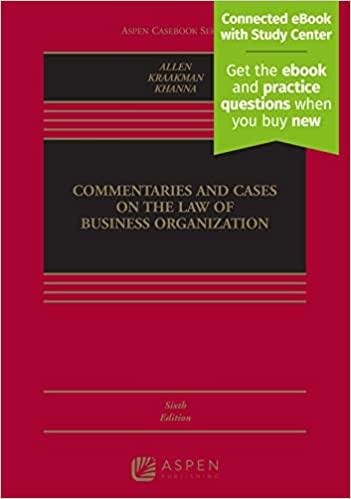Answered step by step
Verified Expert Solution
Question
1 Approved Answer
2. J.C. Penney, a retail merchandiser, has its principal place of business in Plano, Texas. It operates retail stores in all 50 states, including 10
2. J.C. Penney, a retail merchandiser, has its principal place of business in Plano, Texas. It operates retail stores in all 50 states, including 10 stores in Massa- chusetts, and a direct mail catalog business. The catalogs illustrated merchandise available for pur- chase by mail order. The planning, artwork, design, and layout for these catalogs were completed and paid for outside of Massachusetts, primarily in Texas, and Penney contracted with independent printing companies located outside Massachusetts to produce the catalogs. The three major catalogs were generally printed in Indiana, while the specialty catalogs were printed in South Carolina and Wisconsin. Penney supplied the printers with paper, shipping wrappers, and address labels for the catalogs; the printers sup- plied the ink, binding materials, and labor. None of these materials was purchased in Massachusetts. Printed catalogs, with address labels and postage affixed, were transported by a common carrier from the printer to a U.S. Postal Service office located outside Massachusetts, where they were sent to Massachusetts addressees via third- or fourth-class mail. Any undeliverable catalogs were returned to Penney's distribution center in Connecticut. Purchases of catalog merchandise were made by telephoning or returning an order form to Penney at a location outside Massachusetts, and the merchan- dise was shipped to customers from a Connecticut distribution center. The Massachusetts Department of Revenue audited Penney in 1995 and assessed a use tax, penalty, and interest on the catalogs that had been shipped into Massachusetts. The position of the department was that there was a tax due of $314,674.62 on the catalogs that were used by Penney's Massachusetts customers. Penney said such a tax was unconstitutional in that it had no control or contact with the catalogs in the state. Can the state impose the tax? Why or why not? [Commis- sioner of Revenue v. J.C. Penney Co., Inc., 730 N.E.2d 266 (Mass)]
Step by Step Solution
There are 3 Steps involved in it
Step: 1

Get Instant Access to Expert-Tailored Solutions
See step-by-step solutions with expert insights and AI powered tools for academic success
Step: 2

Step: 3

Ace Your Homework with AI
Get the answers you need in no time with our AI-driven, step-by-step assistance
Get Started


